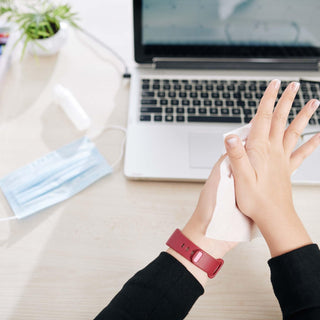- Disinfecting wipes can cause skin irritation and contact dermatitis
- They contain ingredients that are classified as pesticides
- Instead, use skin-friendly sanitizing wipes
maria-harutyunyan
January 10, 2022
Can You Use Disinfecting Wipes On Skin?

maria-harutyunyan
January 10, 2022

